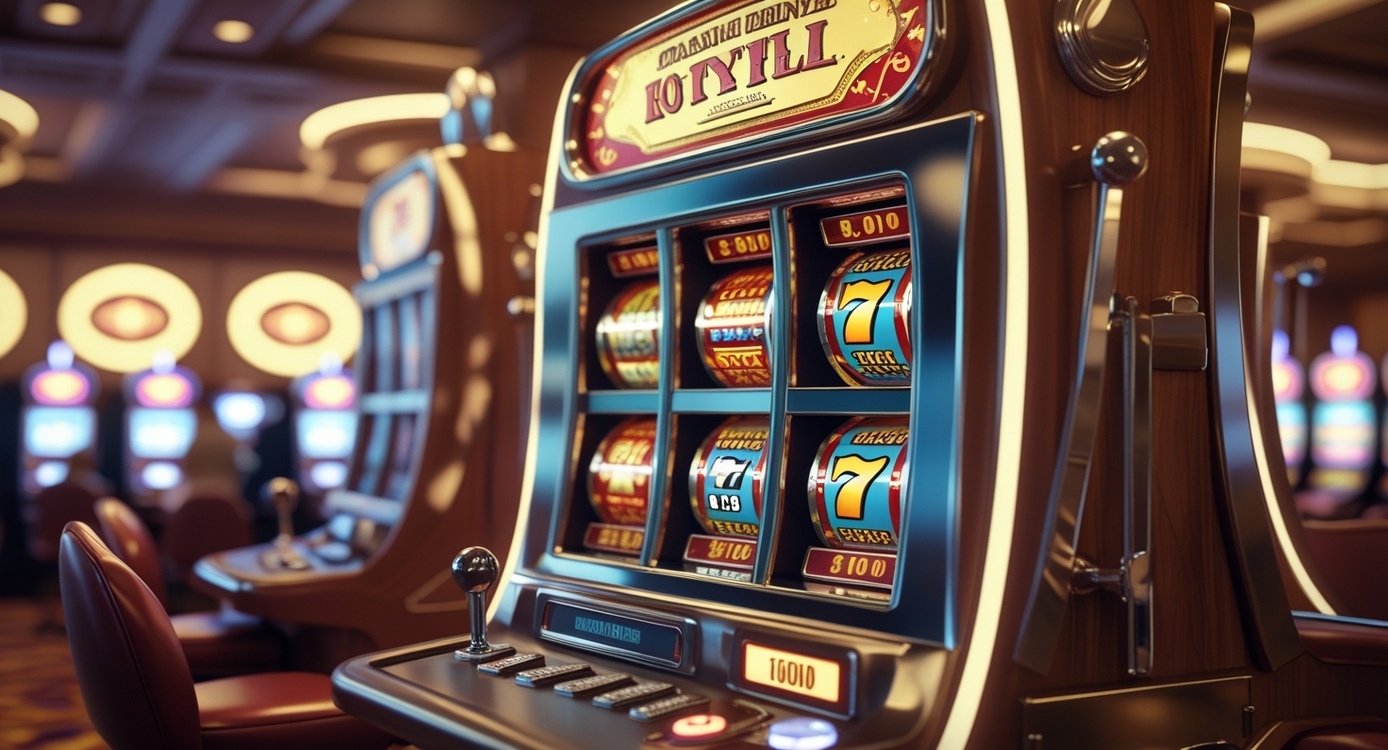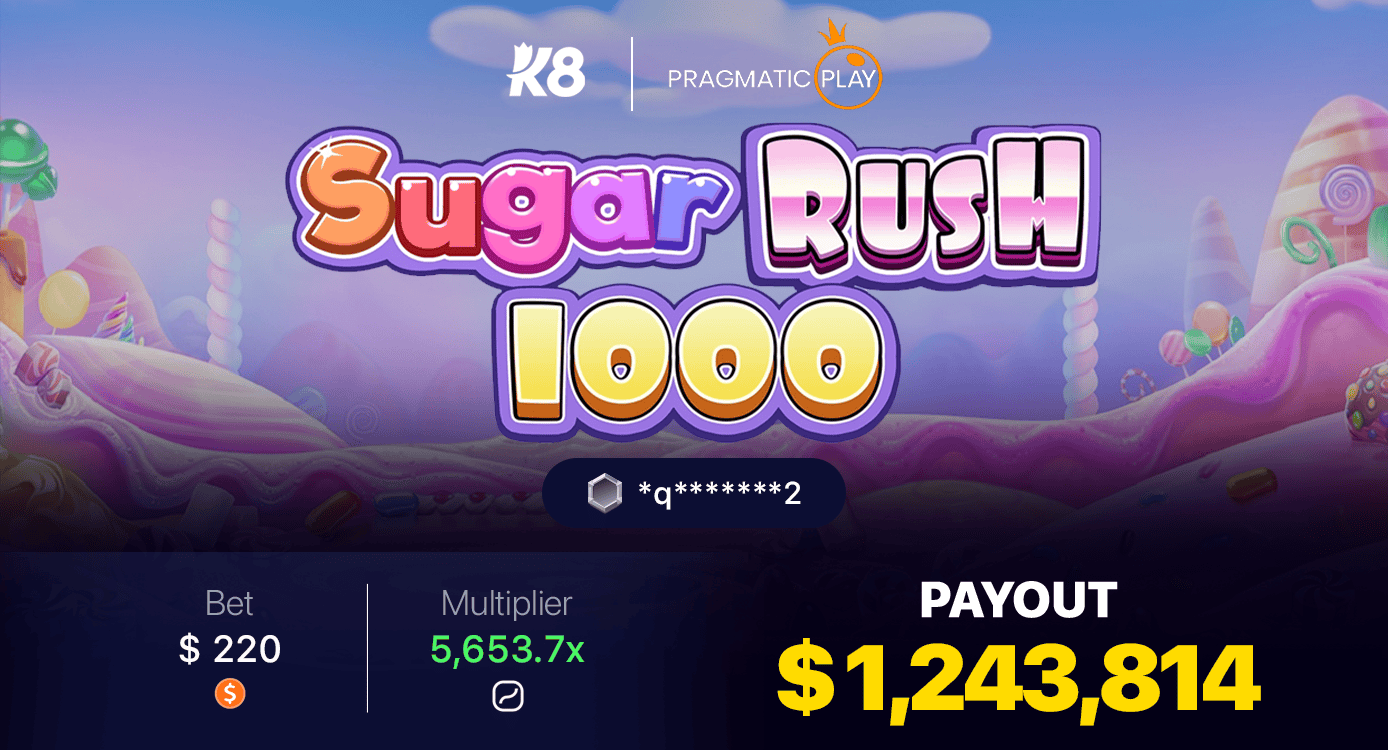News

Built to Win: The Mathematical Edge Behind Every Slot Machine
With only a single spin it could be that coveted golden jackpot symbol, a cherry, or a lucky seven. As the machine clicks into position, your heart skips a beat, the reels blur, and the lights flash. Whether you win or lose, there is always hope for the next spin. And the subsequent one. and the subsequent one.
However, beneath the neon and computerized glitz of today's slot machines is something vastly more powerful but considerably less glamorous: math.
It's not all about luck when playing slots. They are mathematically precise probability games that are meticulously constructed to slant the odds in the house's advantage, ever so little yet consistently. You won't ever look at those spinning reels the same way again when you see how that advantage is determined.
A Game of Numbers Disguised as Chance
Since the first Liberty Bell machine clattered into saloons in San Francisco in the late nineteenth century, slot machines have advanced significantly. Slot machines nowadays are slick, computerized, and algorithm-driven. The Random Number Generator (RNG), the core idea upon which they are based, has remained constant.
Every second, the intricate mechanism known as the RNG cycles through thousands of possible number combinations. The RNG chooses a set of numbers that match the symbols on the reels when you press the spin button. Nothing is actually spinning anymore, despite appearances; all decisions are made before the animation ever completes.
The worst part is that not all symbols are made equal. Weighting of symbols is done behind the scenes. This implies that some are more common than others, and most importantly, winning combinations are statistically less common than your optimistic brain would have you think.
Volatility and the Illusion of Near Wins
This mathematical tapestry also includes volatility, or variation, as a layer. Slot machines with little volatility frequently give you little wins. High-volatility ones rarely pay well. The rare hint of a large win or the all too common near miss—where two jackpot symbols land and the third pops into view just above the payline—keep gamers seeking jackpots.
That isn't a bug or an unfortunate turn of events. Math is involved. Certain slot machines are designed to generate near-misses more frequently than would be possible with pure chance. The technique continues in subtle ways to improve what psychologists refer to as "reward anticipation," while being strictly controlled in some places.
To put it another way, the machine is skilled at keeping you guessing without giving away too much.
Casinos Don’t Just Hope You Lose—They Count On It
For example, let's say you are playing a slot machine with a 95% RTP. You make a $100 deposit. According to statistics, you will have $95 remaining after enough spins. If you keep playing, the $95 becomes into $90.25. Next, $85.74. The game gradually drains your equilibrium.
This gradual flow is what casinos thrive on. For instance, more than 70% of all gambling revenue in Las Vegas comes from slots. This isn't from high rollers wagering thousands; rather, it's from regular players repeatedly inserting twenty dollars into machines in an attempt to get that momentary rush.
The Psychology of the Spin
Remember that there are other sciences at play here besides math. Another marvel of psychological design is the slot machine. The human brain enjoys patterns and unpredictability, and bright lights, joyous noises, and erratic rewards all contribute to what is known as the "dopamine loop." Slot machine designers, who frequently seek advice from behavioral psychologists, are well-versed in taking advantage of it.
In reality, a lot of contemporary slots use what are known as "losses disguised as wins." For example, you could wager $1.00 and "win" $0.25. Even though you just lost 75 cents, your brain interprets the lights flashing and the coins jingling as a win. It's not a coincidence. Deliberate reinforcement is what gives you a sense of accomplishment when you lose.
So, Is It All Rigged?
Not precisely. According to the guidelines they establish, slot machines are fair. They make sure the odds are constantly marginally in the casino's favor rather than outright cheating players. The long-term math is anything but random, yet the results of each spin are.
You're capable of winning. Individuals do. Just not as often—or as much—as they lose.
The Bottom Line: Play Smart or Don’t Play at All
Slot machines are still enjoyable even if you understand the math involved. If anything, it increases the transparency of the experience. Slot machines provide hypnotic, costly amusement with well-calculated odds. Don't mistake them for a means of earning money, either.
The house edge is unseen but always present, so keep that in mind the next time you're lured by a shiny new machine or a dazzling internet promotion that promises "high RTP." What are you going to spin? It isn't just chance. Math is involved. And the formula is never forgotten by the home.
Stick with https://k8airdrop.com/ for more Sports, esport, games, news, guides, and more!
Discover the thrill of cutting-edge online slot games! Visit http://k8.io/ now for an unparalleled gaming experience with the latest and greatest slot games.

Get K8 Airdrop update!
Join our subscribers list to get latest news and updates about our promos delivered directly to your inbox.



